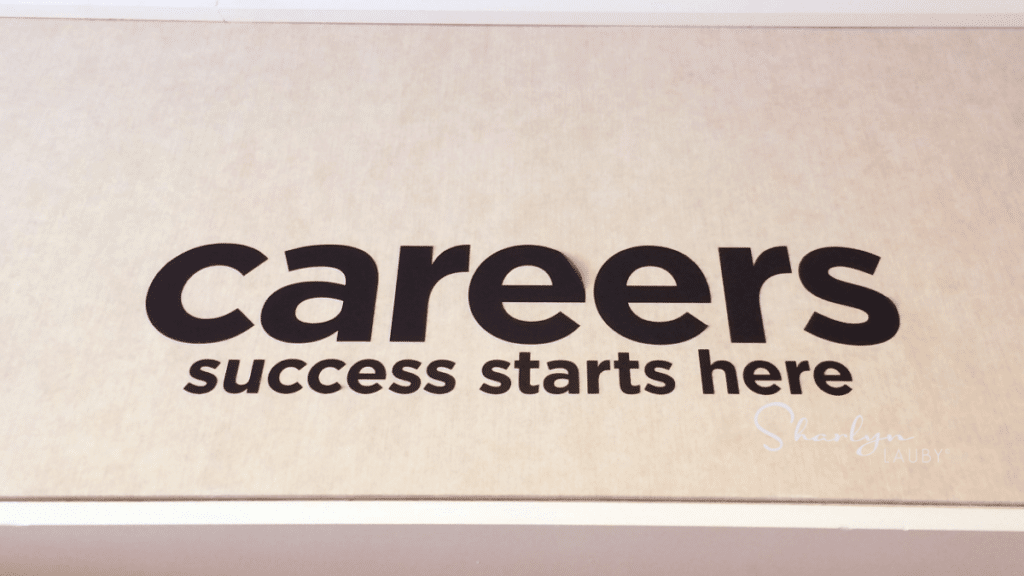Employees: Drive Your Own Career Development

Estimated reading time: 5 minutes
I don’t think I’m alone when I say this is the time of year when I like to reflect on the past twelve months and what I’ve accomplished. And I like to think about what my goals will be for the upcoming year. While there’s always a certain amount of “doing the same” where my long-term career development goals are concerned, there are small goals I want to accomplish. And small goals are just as important as the big ones.
One of the things I do during my year-end career review is look at articles I’ve bookmarked. The articles might mention a book I want to read or a process I want to check out. Here on HR Bartender, we’ve published a few career development articles that might help with your own year-end review process.
You Should Give Yourself an Annual Review
One of the things that’s been tough over the past couple of years is dealing with the lack of feedback. We’re used to getting reactions to our work and when we work remotely, it can be a challenge. I know there are a few companies that either scaled down or put their performance reviews on pause because of the pandemic.
Conducting your own annual review is a good way to recognize how much you’ve accomplished. If your organization does annual reviews, great! This document could be a way for you to prepare for your annual review conversation. If you’re a freelancer or consultant, this could be a perfect way to evaluate your own work and set some goals for the upcoming year. And if you’re looking for a new opportunity, you might be able to use your self-review to start planning your job search.
What To Expect in 2021: Employee Driven Career Development
I really need to rename this article “What to Expect in 2022” because employee-driven career development isn’t going away anytime soon. With an increase in remote work, I believe we’re going to see a greater level of employee driven career development. Learning doesn’t stop when you work from home. But organizations are going to want and need employees to offer some direction in terms of what remote learning looks like. Not only the best way to deliver remote learning but the topics that employees might find valuable.
Career development is about the organization and employees working together to identify learning opportunities. There’s no rule that says managers have to tell employees what to learn. And there’s also no rule that says all learning must happen in the office. Use this as an opportunity to build a career development plan that meets both employee and employer needs.
When To Tell Your Employer That You Are Pregnant
Mr. Bartender and I do not have children. So when a reader asked about telling their new employer that they’re expecting, I wasn’t sure that I had enough personal experience to draw on for an answer. My initial thought is that this is a very personal matter, so “it depends”.
However, to get some insights, I decided to reach out to a few colleagues and friends for their thoughts. Our friend Kate Bischoff offered some great thoughts. “Prioritize telling your friends and family first. Talking to an employer about having kids is really hard because of the stereotypes we have about parenting, flexibility, and the ire that we think employers might have about us needing leave, including leaving work to pick up a sick kid. I know that not all employers have a dim view of working with pregnant and parent employees. Hopefully, this employer cares about you and wants what’s best for you too. Here’s what I recommend: Work on a plan and be open to talking about that plan.”
Start the New Year Betting on You and Your Career
During 2021, I had the opportunity to interview Laurie Ruettimann about her book, “Betting on You” and career development. Laurie shared her love for premortems. “I’m obsessed with the premortem. It’s an old stoic exercise to help you mitigate risk. You begin by thinking of something that will fail. Then set a timer for 60 seconds and write down all the ways it will fail. When the timer is up, you have a list of things to fix before you start your endeavor.”
One of my big takeaways from the book is that the key to success lies in being yourself. Sometimes that means doing the unpopular thing. Sometimes it means you’re going to fail first and succeed later. “Betting on You” is the book you want to have on your bookshelf or on the corner of your desk as a reminder that you’re not alone. We all need that encouragement.
5 Books Every HR Professional Should Own
Speaking of books, an HR Bartender reader asked me about putting together an HR library and I got the chance to share a few of my favorite reads. Whether you’re just starting in HR, or you’ve been in the field for a few years, having a good resource library is important.
And your resource library doesn’t need to solely consist of HR books. A well-rounded HR library should include books on communications, technology, and marketing. I often tell people that I have a marketing textbook on my bookshelf. It’s a valuable reference when it comes to employment branding and recruitment marketing.
One last thing about having a career development review. Be sure to celebrate your successes – big or not-so-big. It’s very easy to focus on the things that didn’t get done. Or the stuff that didn’t go exactly as planned. But I’m sure there are plenty of things that went right. Maybe one of those things that didn’t go well initially, ended up being exactly the right thing. My point is … celebrate your successes and small victories. Then get ready for the New Year.
Image captured by Sharlyn Lauby while exploring the streets of San Francisco, CA
16